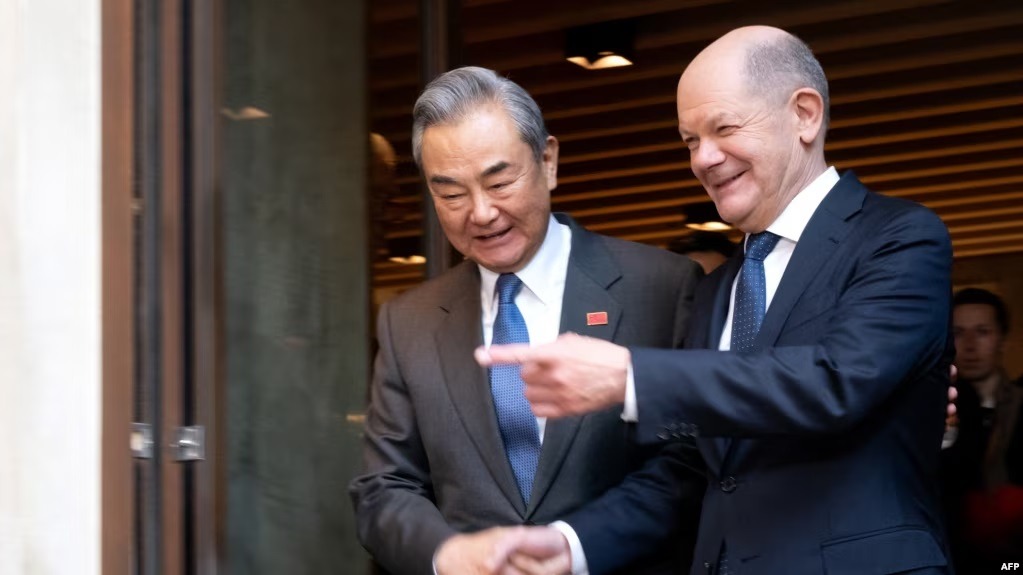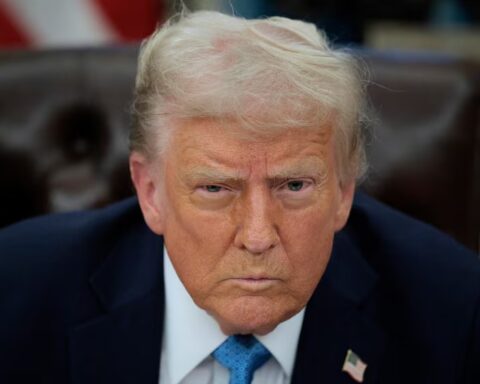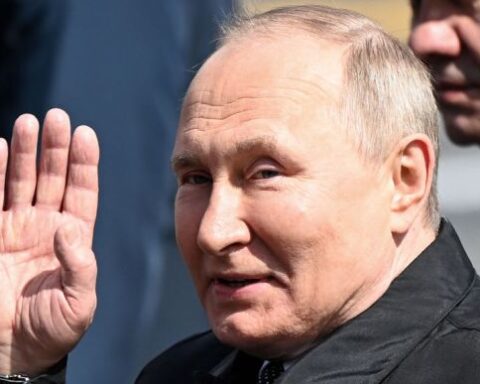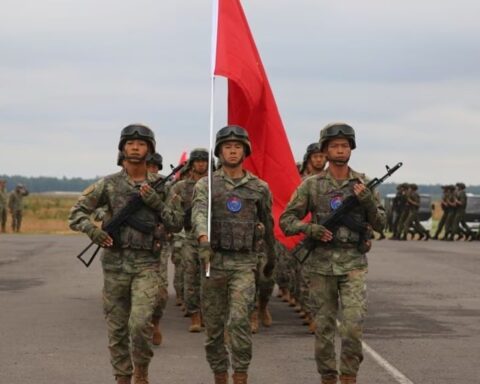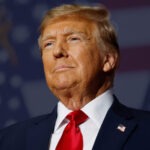Taipei, Taiwan — China has launched a new round of diplomatic outreach to European countries amid rising tension between the United States and its European allies.
Thank you for reading this post, don't forget to subscribe!While top U.S. officials and European leaders clashed over issues such as values, democracy, and Ukraine at the Munich Security Conference over the weekend, Chinese foreign minister Wang Yi held bilateral meetings with several top European officials, including EU foreign policy chief Kaja Kallas, German Chancellor Olaf Scholz, and NATO Secretary General Mark Rutte.
“There is no fundamental conflict of interest or geopolitical conflicts between China and the EU,” Wang said during his meeting with Kallas on Saturday, adding that Beijing “supports all endeavors conducive to peace and backs Europe in playing a significant role” in the peace negotiation process regarding the war in Ukraine.
The EU response was somewhat more reserved, with Kallas saying the EU was ready to “continue with dialogue and cooperate in selected areas, such as trade, economic affairs, and climate change.” She urged Beijing to halt exports of dual-use goods to Russia, which she said fuels Moscow’s ongoing war against Ukraine.
Wang’s remarks were in stark contrast to U.S. Vice President JD Vance’s criticism of European countries. Instead of highlighting the threats posed by Russia and China, Vance accused the European government of censoring right-wing parties and failing to control migration.
“What I worry about is the threat from within, the retreat of Europe from some of its most fundamental values, values shared with the United States of America,” he said in a defiant speech that stunned European officials in Munich.
Several European leaders quickly rejected Vance’s remarks, with German Defense Minister Boris Pistorius saying the U.S. vice president’s characterization of European policies was “unacceptable.”
The rare open clash between the U.S. and European countries came as top U.S. officials, including Secretary of State Marco Rubio, national security adviser Mike Waltz, and Trump’s Middle East envoy Steve Witkoff, flew to Saudi Arabia on Sunday for talks about the Ukraine-Russia war with Russian diplomats.
To the surprise of many European leaders, U.S. Special Envoy for Ukraine and Russia Keith Kellogg said in Munich that European countries wouldn’t be part of any peace talks between Russia and Ukraine, which would be mediated by the U.S.
Analysts say China’s effort to strengthen engagement with Europe is part of Beijing’s plan to take advantage of divisions between Washington and its European allies.
“China’s posture is about exploiting the perceived mistakes of any U.S. administration,” said Mathieu Duchatel, director of international studies at the French policy group Institut Montaigne.
He told VOA by phone that the current tension between the U.S. and European countries has created an opportunity for Beijing to “weaken the transatlantic alliance on China policy.”
Given that U.S. President Donald Trump has threatened to impose tariffs on European countries, other experts say the growing tension in transatlantic relations could force the EU to moderate its policies towards China.
“Since Europe can’t afford to wage two trade wars at the same time, it will be difficult for the EU and EU member states to maintain critical policies toward China,” Matej Simalcik, executive director of the Central European Institute of Asian Studies, told VOA in an interview in Taipei.
In recent weeks, European Commission President Ursula von der Leyen, who has pushed the EU to adopt more assertive policies against China, has repeatedly said the bloc is open to improving relations with China.
Europe “must engage constructively with China—to find solutions in our mutual interest,” she said during a keynote speech at the World Economic Forum in Davos last month.
US-European ties expected to hold
While European countries may consider adjusting their China policies, some European analysts say it’s unlikely for these attempts to turn into a fundamental shift of European policies towards China and the U.S.
“The U.S. and Europe are each other’s most important trading partners, so I don’t think there will be a [complete] transatlantic break,” said Sari Arho Havren, an associate fellow at the Royal United Services Institute.
European countries “are testing the grounds and seeing what can be done, but at the same time, European officials have said whatever happens with China, it must be fair,” she told VOA by phone, adding that these factors will prevent the EU from “walking back” their earlier positions on China entirely.
Additionally, Duchatel at Institut Montaigne said Beijing’s decision to appoint former Chinese ambassador to France Lu Shaye, a prominent “wolf warrior diplomat,” as its special representative for European affairs means China is unlikely to make major concessions in its relations with the EU.
“Lu’s appointment represents inflexibility on everything that matters,” he told VOA, adding that some European diplomats said the new Chinese special envoy would “turn any diplomatic meeting into some sort of ideological confrontation that leads to no common position” between Beijing and European countries.
While China and the EU’s fundamental differences over issues such as Beijing’s partnership with Russia and the trade imbalances remain unresolved, some Chinese academics say the growing tension between the U.S. and European countries still offers an opportunity for Beijing and Europe to “increase mutual trust.”
“The growing tension in transatlantic relations has created a new environment for China to moderate relations with the EU, but it doesn’t mean European countries will reduce their criticism over Beijing’s partnership with Russia or China’s human rights record,” Shen Ding-li, a Shanghai-based international relations scholar, told VOA by phone.
By William Yang



